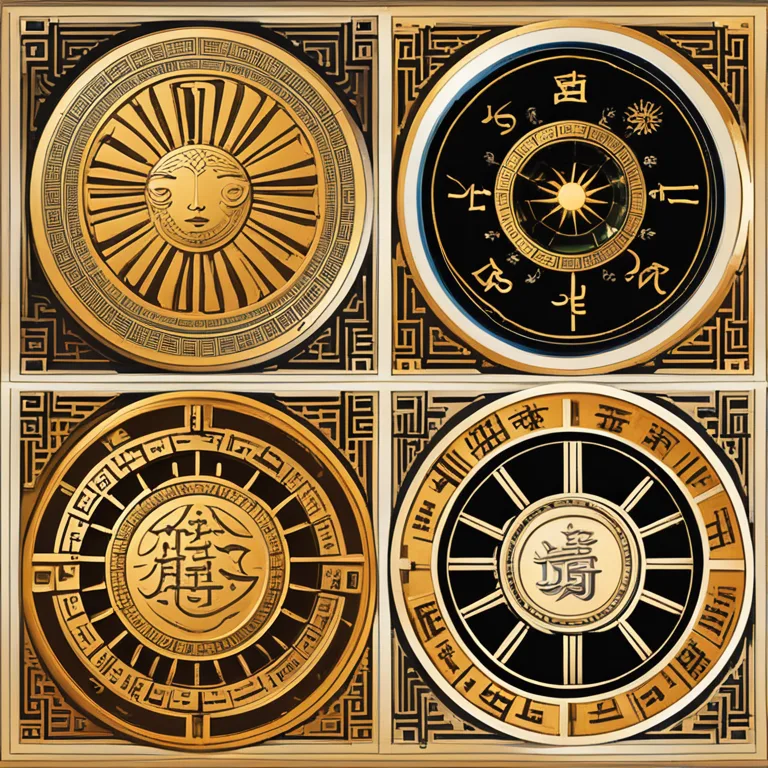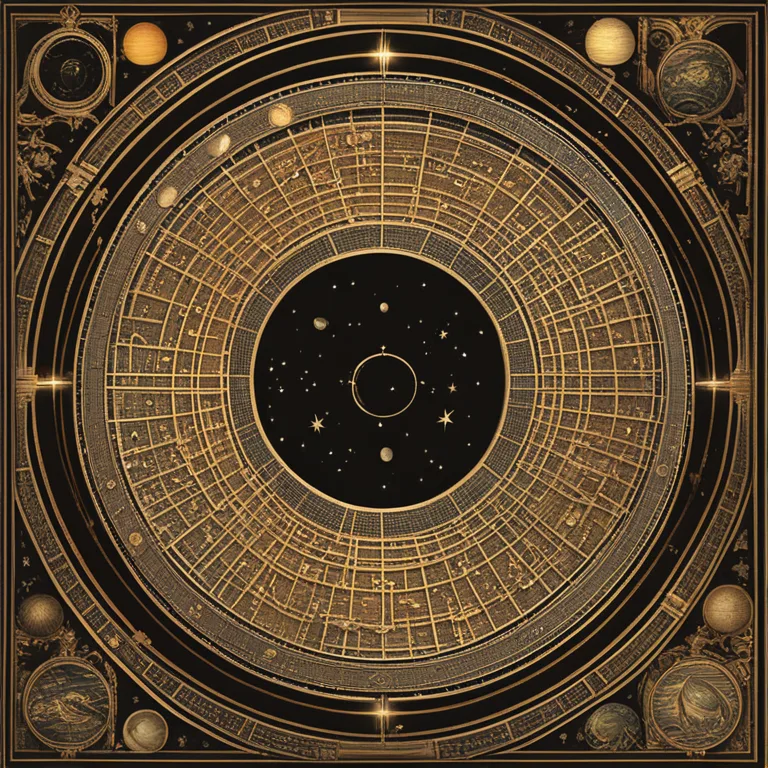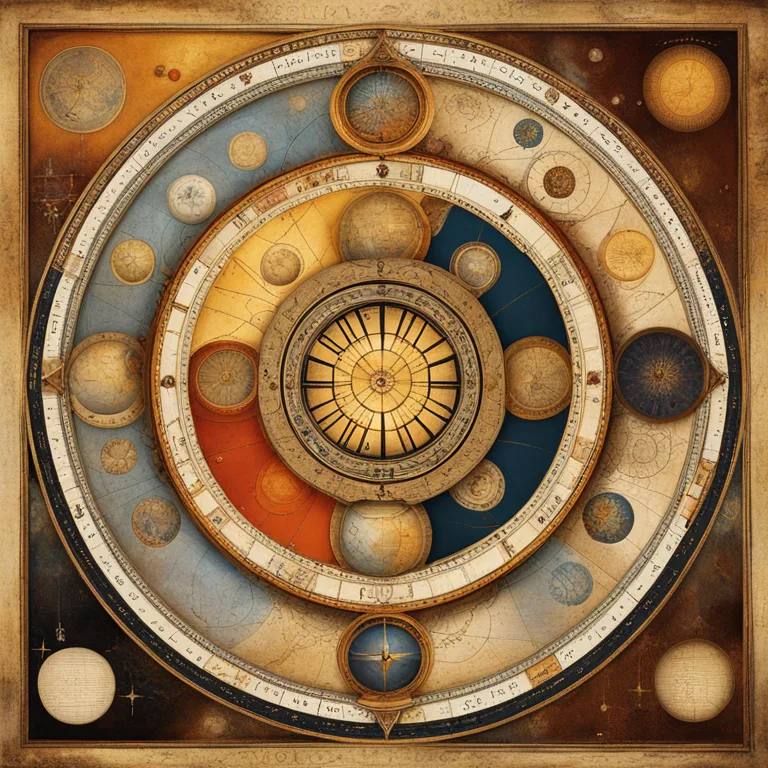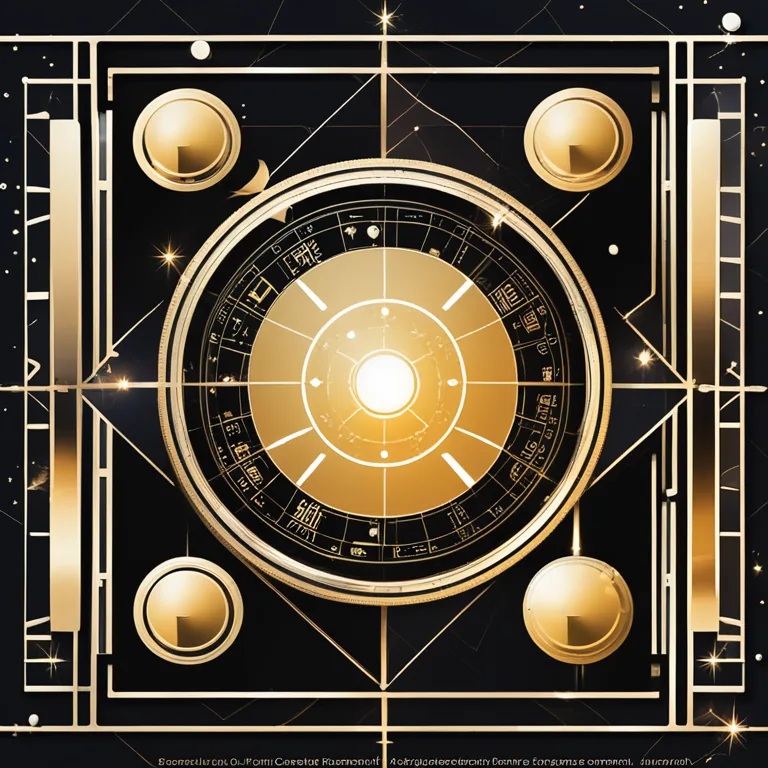
Origins of Astrology: Tracing Celestial Wisdom
Discover the ancient roots of astrology and its journey through time as a celestial art form influencing human life and culture.
article by Priya Deshmukh
The Dawn of Astrological Practice
Astrology's origins are as complex and varied as the patterns of the stars themselves. From the earliest record, human beings have looked to the heavens for signs and guidance. Ancient civilizations such as the Babylonians played a pivotal role in the development of astrology. They began charting the movements of the planets and stars, linking their positions to earthly events and human behavior. This ancient synergy between the skies and our lives laid down the foundational belief that celestial bodies could influence human destiny—a core tenet of astrology that persists today.

Astrology Across Cultures
The proliferation of astrological practice did not remain confined to a single culture or geography. The Greeks inherited astrological traditions from the Babylonians, intertwining them with their own mythology and philosophy, giving us the zodiac signs we are familiar with today. In China, a distinct form of astrology developed, which emphasized the balance of energies, epitomized in concepts like Yin and Yang. Meanwhile, in India, Vedic astrology (Jyotisha) emerged, offering a unique perspective on how celestial bodies impact our lives, differentiating itself with a more spiritual approach tied to Hinduism.

The Evolutionary Path of Astrological Systems
Through the ages, astrology has evolved in step with human society and technological advances. The Renaissance period revived interest in astrological studies, meshing it with the era’s burgeoning scientific discoveries. Different branches emerged, such as natal astrology focusing on individual birth charts and mundane astrology devoted to worldly events. The modern era has witnessed astrology's migration into digital realms, with online horoscopes and astrological services becoming widely accessible, propelling the ancient art form into the latest phase of its evolutionary journey.

Modern Astrology and Technological Integration
As we gaze beyond 2024, astrology continues to adapt to the digital revolution and greater cosmic awareness. What once required extensive calculations by seasoned astrologers can now be accomplished in seconds with sophisticated software. This ease of access allows contemporary seekers to delve into astrology with a mere click, whether looking for daily horoscopes, understanding their birth chart, or seeking celestial compatibility with potential partners.

Astrology’s Enduring Appeal
What accounts for astrology's enduring appeal across millennia? The human quest for self-understanding and foresight remains undiminished by time. Astrology offers a unique blend of mystery, psychological insight, and cosmic narrative that resonates with many. It stands at an intriguing intersection of art, tradition, and perceived science, providing comfort, guidance, and entertainment to those who gaze upon the stars, wondering about their place in the vast universe.
Future of Astrological Practice
Looking ahead to 2024 and beyond, astrology promises to continue its role in cultural practices and personal insight. With advances in AI and a growing appetite for personalized experiences, we may see a surge in customized astrological forecasts, blending traditional wisdom with modern analytics. Astrology will likely continue to adapt and thrive, as it has done for thousands of years, reflecting humanity's endless fascination with the stars above.
Published: 12/29/2023
Modified: 12/29/2023
More predictions
Come back here soon to learn more about yourself and your future


The Essence Of Your Birth Chart Wheel
Delve into the layers of your personality by understanding the key components of your birth chart wheel, an astrological tool for self-discovery.


Birth Chart: The Powerful Role of Jupiter
Explore the powerful role of Jupiter in astrology and its profound impact on our personal growth, luck, and life philosophy in the birth chart.


Birth Chart Without Time: Overview
Discover insights into analyzing a birth chart when the exact time of birth is unknown, providing alternative astrology approaches for clarity.